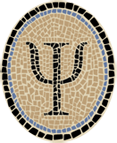The Schnapsen Log
Reunion
Martin Tompa
Thursday, August 21, 1947. Southampton, U.K. After five long days at sea aboard the Queen Elizabeth, Peter and Liesl walk a little unsteadily down the gangway with their luggage. Liesl remembers departing England aboard a similar ship, destined for her new life in New York, exactly 7 years earlier when she was only 20 years old. But that is another story. As they descend today, Peter scans the welcoming crowd on the pier for faces he might recognize. After a frustratingly long time, he spots his younger brother Tibor waving and grinning broadly, and then sees Hans next to him. Peter points them out to Liesl, and the two of them make their way down and through the crowd to the waiting brothers.
Peter puts down his suitcase. He and Hans grasp each others’ shoulders, smile slightly, and then embrace. As they disengage, Hans says, “Do you know how long it has been since we last saw each other? Eleven years! That was the last time I visited Vienna. I was 25 and you were 24.”
“A lot of things got in the way of us seeing each other,” Peter replies simply. “Fortunately those terrible events are over now. It is wonderful to see you again, Hans!”
Peter now moves to Tibor and embraces him. Tibor says, “A mere eight years since we last saw each other, Peter. In Budapest, before I left for Italy. Just months before the war began.”
“So much time lost,” says Peter, reflecting, but then his tone brightens. “Allow me to introduce my wife Liesl. My big brother Hans and my little brother Tibor.” More hugs follow. Tibor takes over the luggage and says, “Let’s get out of this crowd.”
As they walk, Hans says, “Phyllis is at home in Cookham with the children. We’ll take the train there.”
Once they are settled comfortably in their own compartment on the train, they can finally talk more easily. They exchange descriptions of the important parts of their new lives: marriage, children, work, homes, citizenship. Over the past year, Peter has attained citizenship in the United States and Hans in the United Kingdom. Tibor and Liesl are still in the midst of the lengthy processes. Peter suggests that Tibor should come to New York to finish the education that was interrupted by their deportation from Vienna.
Finally Peter manages to get out the words with which he has been struggling since they left the pier. “I was so sad to hear about Anyu’s final weeks, suffering with cancer. I know it is now two years ago, but it was impossible to do the conversation justice by telegram and letter. And then to hear about poor Apu’s emotional decline, without her, over the next eight months, and his decision to take his own life! It was heartbreaking. And you, poor Tibor, being the one who had to find him like that.”
“It was horrible,” Tibor says simply, looking quite miserable as he recalls the event.
Hans lays a comforting hand on Tibor’s shoulder. “I don’t think that Apu was ever really happy in the U.K. He lived here for six years, but he never worked, never had money, never really learned the language, and never felt it was home. Plus the fact that the war was making everyone’s life miserable during those six years. And then when Anyu was gone …” Hans’s voice trails off and there is silence, except for the rhythmic sounds of the train.
After several minutes of individual contemplation, Hans says, “I know what will lighten the mood. Peter, it has been eleven years since we’ve played cards together. Do you remember when we were growing up in Zalaegerszeg and in Vienna, when we would play every single day after school? We still have a long ride ahead of us, with plenty of time for each of us to get a chance to play. What do you think?” He reaches into his jacket pocket and pulls out a deck of cards.
“Yes, by all means,” Peter answers. “I have fond memories of our games together. Who wants to play first?” Liesl and Tibor insist that the two older brothers should start, for old time’s sake. Hans hands Peter the deck and Peter shuffles and deals the cards. After a few deals, Peter finds himself in this situation:
Unseen cards:
♠ A
♥ KJ
♣ Q
♦ KQPeter’s cards:
♠ T
♥ AT
♣ A
♦ ATrump: ♠Q
Stock: 1 face-down card
Game points: Hans 1, Peter 2
Trick points: Hans 18, Peter 19
On lead: Hans
Hans shows the diamond marriage, bringing his trick point total to 38, and leads ♦K. Peter considers his handful of powerful cards and reviews the list of cards he has not yet seen. Do you see how he should proceed? When you think you have a good plan, you are welcome to read my analysis.
© 2014 Martin Tompa. All rights reserved.




